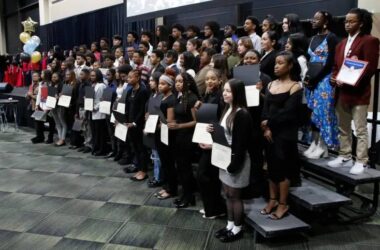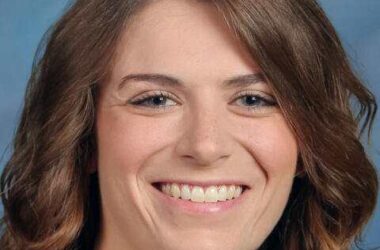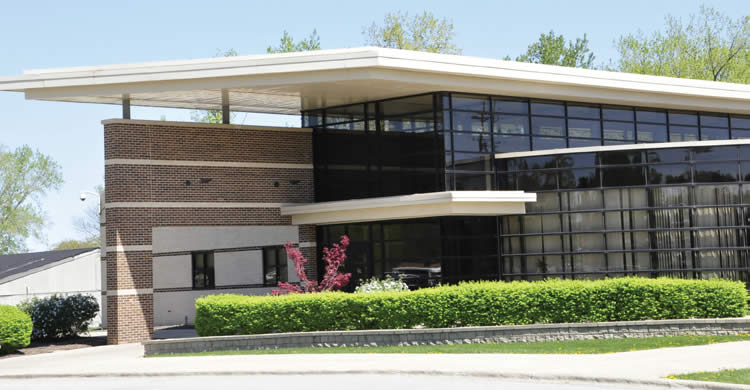CHICAGO–(ENEWSPF)–December 1, 2014.
Alfred DeFreece, assistant professor of sociology, is faculty advisor to the Black Student Union and an affiliated faculty member with Roosevelt’s St. Clair Drake Center for African and African American Studies. DeFreece, who started at Roosevelt in 2010, teaches classes such as “Race and Ethnic Relations” and “Youth in a Culture of Violence.”
We asked DeFreece to share his reactions and reflections on the unrest in Ferguson, Missouri, following the news that police officer Darren Wilson would not be indicted in the shooting death of 18-year-old Michael Brown.
Q. What did you think when you heard the grand jury had decided not to indict Darren Wilson?
Sadly, I was not surprised. The jury only had to accept that it was “reasonable” for Mr. Wilson to believe that his life was in danger. There is a good deal of research in the area of implicit bias finding that most Americans have bought into the notion—even unconsciously—that young black males present a major threat to public safety. It is an unstated logic that fear of black males is normal, understandable, reasonable and in some circles just good common sense. The likelihood of a jury not being influenced by such an inbred bias seemed incredibly low to me at the outset. When we add to that the honorific status granted law enforcement, I had very little expectation that the jury’s interpretation of the evidence presented would run counter to our culture’s common narrative.
My next concern was how a rebellious response would be covered by the media and received by the public at large. Rebellion is the natural posture of a group that is alienated and unable to meet the aggressor—in this case, the state—on its own terms. The youth who became involved in the destruction of property feel no ownership in mainstream economic and political institutions. I was saddened by the rebellion because it showed a lack of discipline and organization necessary to turn people-power into something that the state has to fear. All of that energy comes out of a sense of hopelessness and a need for change. When that many young people feel that betrayed, it says to me that their elders have failed to create a place for them.
Q. What do these events tell us about the state of race relations in the United States? Has anything changed?
What has changed is the permissible means of social control of black bodies. What has not changed is the necessity of American democracy to exercise control over black bodies. Statistically speaking, police brutality—particularly the murder of young black men by white police officers—is a racial issue. The numbers show that being young, black and male dramatically increases the odds of a run-in with law enforcement ending fatally. If anything, the problem of abuse of power has “spilled over” into some non-black communities. But at its heart lies the drive to maintain one caste-like stratum against which the rest of us can measure our successes, hopes and fears. There is a taken-for-granted assumption that the values driving our political and economic priorities are the best values. Those who have the most invested in maintaining those values reap the greatest benefits.
Q. What can we learn from Ferguson? What must we learn?
Ferguson must teach us many things, including the need for disciplined, well-trained and well-organized resistance. The entities people are mobilizing against, institutions like law enforcement and the courts, are so well-organized that they can produce inequalities without even trying. Resistance needs to be organized to be effective.
We also need authentic, multi-voiced histories of the U.S. The watered-down versions of multicultural histories that we now have tend to come too little, too late. It is a struggle for marginalized groups to learn the roles that those they may identify with have played in building this nation. The degree of cynicism and alienation that results is hardly surprising.
Ferguson also shows us the need to plainly state the assumptions underlying all sides of the debate. There are very few examples of discussion and debate that move beyond the surface and address the fundamentally opposed ways in which the parties understand the world to work. The challenge we face is to see the position of the other as valid while also being critical of our own assumptions and asking how they run counter to justice.
As a nation, we need to rethink law enforcement in both principle and practice. In the short-term, that means measures like body cameras and new rules on the appointment of special prosecutors. In the long term, we need an extended discussion of and action around the role of law enforcement in our society. Law enforcement has traditionally been in place in order to protect the lives and property of the few.
Finally, Ferguson teaches the need to build inclusive institutions, not merely integrate exclusive institutions.
Very little attention is given to the deep and thoroughgoing sense of being disowned by society that exists among many marginalized communities. Typically, our institutions seek to integrate those who can at least muster some pretense of sharing their established vision. This is not the way toward building institutions that honor difference of experience.
Q. How are the problems in Ferguson reflected in Chicago?
Youth in both spaces are largely pushed to the edges and frustrated. The political economy, geography and history obviously differentiate the ways in which that frustration is played out, but the frustration is much the same. And frustrated populations, by neoliberal logics at least, require greater social control to be exercised among them.
Q. What role can academia, centers like the Drake Center and students play in solving this problem?
The multidisciplinary nature of centers allows for faculty and students with shared interests, outlooks and expertise to work together around a common set of goals. Resistance is necessarily a multi-pronged project. We can serve as an incubator where scholarly knowledge and the knowledge of students and young people directly affected by issues like police brutality coalesce into the articulation of clear action agendas.
Source: www.roosevelt.edu








